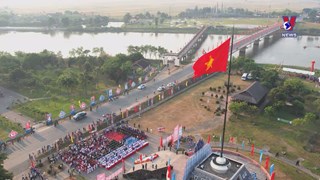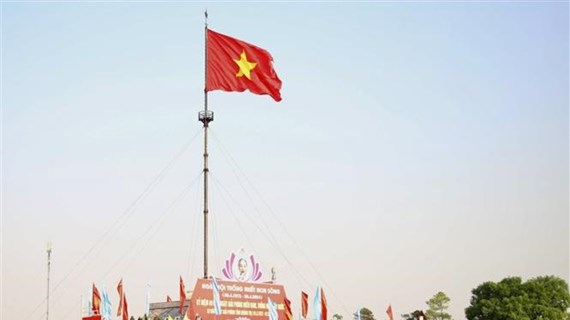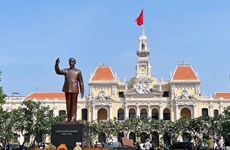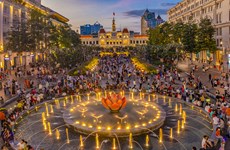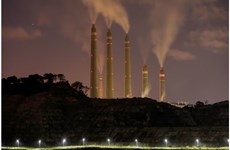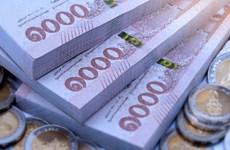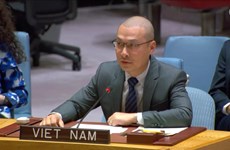Indonesia plans to develop affordable new energy sources
 Illustrative photo (Photo: antaranews.com)
Illustrative photo (Photo: antaranews.com)Jakarta (VNA) – Indonesia wants to develop projects on new energy sources such as nuclear, hydrogen and ammonia to achieve its Net Zero Emissions (NZE) by 2060 or sooner, according to the Ministry of Energy and Mineral Resources (ESDM).
Yudo Dwinanda Priaadi, the Director General of New and Renewable Energy and Energy Conservation of ESDM, said that the country can achieve the NZE target earlier than 2060 with international support through technology transfer and sponsoring.
Yudo said that Indonesia needs affordable new energy sources that are accessible to everyone.
He anticipated that by 2060, most of the energy used in the country will be solar energy but it will need batteries to store the energy.
Southeast Asia's largest economy aims to reduce carbon emissions by 29% by 2030 and achieve net zero emissions by 2060. For its part, ESDM expects the country will get a solar power capacity of 2.14 GW by 2030, of which 0.64 GW in households, 0.74 GW in state-owned enterprises, and the rest in industries.
However, as of November 2022, Indonesia only had 6,461 households install rooftop solar energy systems with a total installed capacity of 77.6 MW. That shows a big gap between the current growth rate and the desired goal.
Yudo said that they are serious about building the battery ecosystem and that Indonesia still needs to promote the expansion of the production of power sources like geothermal and hydroelectric power.
ESDM also sees potential in new energy sources to help offset shortfalls in intermittent renewable energy. Therefore, according to Yudo, Indonesia plans to build a nuclear power plant that is expected to meet its domestic energy needs.
Indonesia’s National Nuclear Energy Agency of Indonesia (Batan) announced plans to develop large-scale nuclear power plant projects in several areas in the country including Central Java province and Bangka Belitung.
However, according to the Institute for Essential Services Reform (IESR), the development of these projects faced difficulties due to serious mistakes in design, environmental and financial issues.
Meanwhile, according to ESDM, Indonesia is considered to have the potential to become a global hub for green hydropower because of its large uses of hydrogen in the ammonia industry and other industries.
Currently, Indonesia's annual hydrogen production is 1.75 million tonnes. However, green hydrogen is still relatively expensive due to factors including high costs in electrolysis and renewable electricity production, and low renewable energy capacity./.
